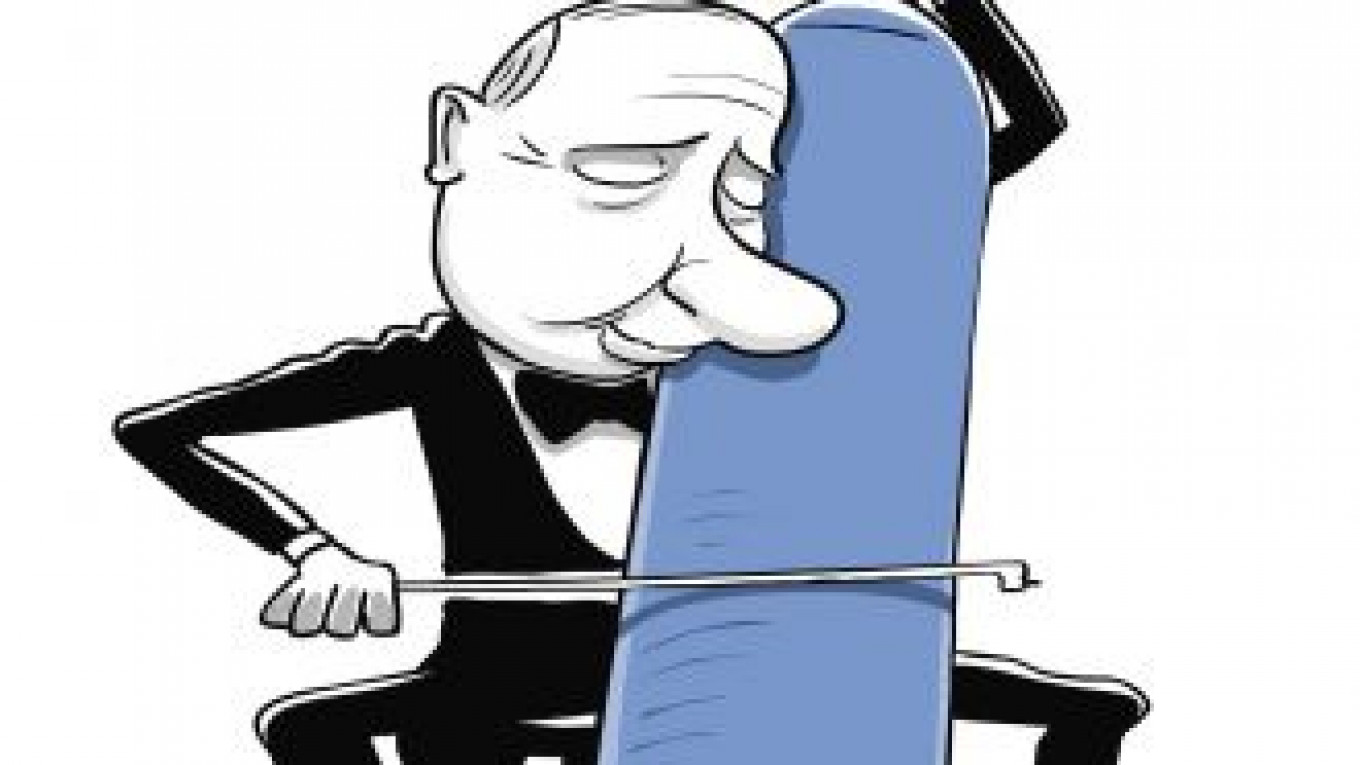It is often said that many of President Vladimir Putin's policies are driven by a desire to make Russia respected in the global arena. But perhaps Putin has overlooked which trumpets to blow. He should be exploiting Russia's culture, not its military strength or trying to stand up to the U.S.
I reached this conclusion after watching the opening of the new, beautiful extension of the Mariinsky theater in St. Petersburg on Mezzo television, the French cable station for classical music.
The performance was so rich that it overshadowed all the great performances I've seen in London, New York, Paris or Moscow. It lasted two hours, with each segment lasting only four minutes, alternating between opera, ballet and two solo violinists and one pianist.
Putin was in the audience, but he was not in the official box usually reserved for heads of state. He took a seat in the middle of the hall. Was Putin aware of the political power of an event like this? I doubt it.
In St. Petersburg, there is a second great ballet company, the Mikhailovsky, as well as the Hermitage museum. Besides its superb collection of Western art, the Hermitage also has some of the best Russian art. There is also the mouth-dropping architecture of St. Petersburg, including the Winter Palace, which knocks every other northern European city out of the ring.
In Moscow, there is the Bolshoi ballet and opera. Russia is home to the world's two leading ballet companies.
Russia is also home to the world's greatest writers — Lev Tolstoy, Fyodor Dostoevsky, Ivan Turgenev, Anton Chekhov, Alexander Solzhenitsyn, Boris Pasternak, Alexander Pushkin and Anna Akhmatova — and musicians: Pyotr Tchaikovsky, Sergei Rachmaninov, Sergei Prokofiev, Mikhail Glinka, Modest Mussorgsky, Dmitry Shostakovich, Igor Stravinsky and Aram Khachaturian.
Italy may be better in painting and sculpture, Holland in painting, Britain and France as good in literature and Germany and Austria in music. (I'm afraid the U.S. doesn't get a mention.) But no country has such distinction in so many of the arts.
Mr. Putin, isn't that enough? Yet, you will say Russia must build up its military might. This will surely be a difficult task.
Of course, a country that has thousands of nuclear weapons has some power, but these weapons are intended to deter, not to be used. The U.S. and Russia no longer regard each other as enemies, despite the occasional hostile rhetoric. So why do both sides continue to possess these weapons?
U.S. President Barack Obama wants to negotiate another reduction of nuclear weapons. Russia is stalling, objecting to current U.S. anti-ballistic missile installations and its plans to develop future ones. Yet Obama has modified this plan twice, and the first time Putin gave Obama praise for taking a difficult step forward.
One current example of Putin using Russia's soft power was granting Snowden temporary asylum. Snowden fell into Russia's lap unexpectedly, but many are glad to see Putin making the most out of a human rights issue. Now he should work for the release of the Pussy Rioters and other dissidents to make another mark.
Putin is fortunate to rule over a country with such a rich culture. Indeed, because Russia's cultural roots and manner are European, Russia should be regarded as a full member of the Western world. Russia should use the soft power tools it has more effectively — above all, its rich culture — rather than relying on the hard power of military strength and aggressive rhetoric.
Putin needs to understand that real power does not grow out of the barrel of a gun.
Jonathan Power is a former foreign affairs columnist for the International Herald Tribune.
A Message from The Moscow Times:
Dear readers,
We are facing unprecedented challenges. Russia's Prosecutor General's Office has designated The Moscow Times as an "undesirable" organization, criminalizing our work and putting our staff at risk of prosecution. This follows our earlier unjust labeling as a "foreign agent."
These actions are direct attempts to silence independent journalism in Russia. The authorities claim our work "discredits the decisions of the Russian leadership." We see things differently: we strive to provide accurate, unbiased reporting on Russia.
We, the journalists of The Moscow Times, refuse to be silenced. But to continue our work, we need your help.
Your support, no matter how small, makes a world of difference. If you can, please support us monthly starting from just $2. It's quick to set up, and every contribution makes a significant impact.
By supporting The Moscow Times, you're defending open, independent journalism in the face of repression. Thank you for standing with us.
Remind me later.






